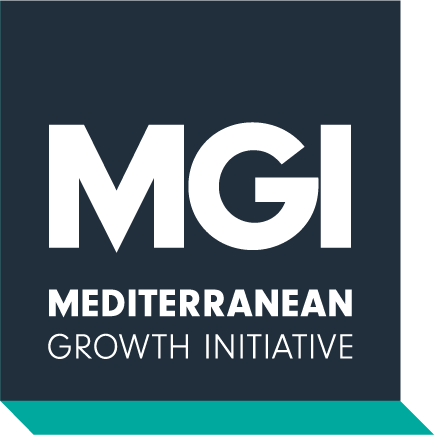MGI Weekly round-up | 21st April 2017
Turkey’s referendum to expand executive powers passed by a narrow margin, the IMF meets for its bi-annual conference in Washington where Greece and the European Stability Mechanism will be hot topics, and delays in a significant West Bank development project highlight both the challenges and opportunities investors face in the region.
Referendum passes in Turkey
Votes in Sunday’s referendum to significantly expand President Tayyip Erdogan’s executive powers have been tallied, handing the leader a narrow victory. An appeal of the results, launched by opposition parties, has been rejected. The appeal was based on a late decision by the electoral board to allow unstamped ballots, and a number of other considerations such as the fact that the election was held under emergency rule with opposition co-leaders under arrest, opposition polling station monitors had been rejected, and significant state resources had been poured into the “Yes” campaign.
The first move as the new reforms are implemented is likely to be for President Erdogan to gradually resume leadership of the ruling AK Party in parliament. Prior to the referendum’s amendments, Turkey's president was required to remain non-partisan.
The institutional changes that will be implemented are likely to threaten Turkey’s future EU membership. The stronger presidential system is unlikely to meet democratic criteria for joining the trade bloc. Furthermore, President Erdogan has promised to reinstate the death penalty. The death penalty was first removed as a step to meet the basic requirements for application for EU membership. MGI will be watching with keen interest as Turkey and the EU move forward on the membership file.
IMF meets for its bi-annual conference
Officials from the G20 are meeting this week at the bi-annual conference of the IMF and the World Bank in Washington DC, from Thursday until Sunday. The IMF recently released its popular World Economic Outlook.
The meeting takes place amid a stall in talks between the IMF, European Commission, and Greece. Talks have broken down largely as a result of a sticking point between the EU and IMF over Greece’s fiscal targets. Talks are likely to continue informally in the backrooms of Washington, with a focus on Greece’s fiscal path and further debt relief.
Earlier this week, the IMF revealed that it may proceed with Greece’s bailout program with a small amount for one year. Elsewhere, German Finance Minister Wolfgang Schaeuble provided further details on the European Stability Mechanism pivot to a European monetary fund, which may have implications for future programs with Greece, Portugal, and Italy.
Start-up city in the West Bank faces delays, but highlights both challenges and opportunities in the region
On Thursday, Bloomberg’s Businessweek published an interesting profile of Rawabi, a $1.4 billion start-up city outside of Jerusalem. The city is being built using an inflow of funding from Gulf investors with faith in the Middle East peace process.
Despite investor optimism, some developers report that the political climate has made it challenging to access utilities infrastructure and construction equipment. While the project’s completion has been delayed several years and costs have doubled compared to the original budget, the report nonetheless describes the successful installation of many modern amenities such as amphitheaters, parks, and playgrounds designed to attract upwardly mobile Palestinians.
The city hopes to accommodate 40,000 peoples and house 3000 jobs. Developers are pursuing both Israeli and Palestinian tech companies alike. The success of the city will serve as a barometer of both the peace process and the economic potential for regional investment.
The week in data
Mediterranean data releases covered by MGI.online’s statistics portal had relatively low impact on markets this week, with releases mostly consisting mostly of soft indicators and confirmations of previous flash estimates. An exception was the unemployment rate release for Turkey, which rose yet again (despite a simultaneous rise in consumer confidence). Highlights of the week in data:
- The unemployment rate in Turkey rose 1.9% in January to 13.0%, according to Turkstat http://bit.ly/2ojm7Cw
- Consumer confidence in Turkey for the month of April increased 5.1% compared to March. The index rose to 71.3 from 67.8 http://bit.ly/2oYk5uX
- The balance of trade for Italy in February was +€1.9 billion, of which +€0.2 billion was with EU Member States and +€1.7 billion was with non-EU traders http://bit.ly/2pR5len
- Inflation in Italy in March declined to 1.4% on an annual basis, down from 1.6% in February, confirming the initial flash estimate http://bit.ly/2pbFVZx
- France’s Composite Purchasing Managers' Index in April grew for the 10th consecutive month. It was the strongest growth in almost 6 years (Markit) http://bit.ly/2pl5eeP
Looking ahead
A slow start to the week will make way for a rush of data for major Mediterranean economies on Friday. Highlights:
Monday April 24, 2017:
- Slovenia: Employment for February (Register Data)
Tuesday April 25, 2017:
- Montenegro: IPI for March
Wednesday April 26, 2017:
- France: consumer confidence, Turkey Central Bank monetary policy rate decision
Thursday April 27, 2017:
- Israel: IPI for February
- Spain: CPI for April, Employment for 2017Q1
Friday April 28, 2017:
- Spain: real GDP for 2017Q1, retail sales for March
- France: CPI for April, real GDP 2017Q1
- Italy: CPI for April
- Slovenia: CPI for April
- Montenegro: employment
- Turkey: balance of trade for March
- Greece: retail sales for February, PPI for March
